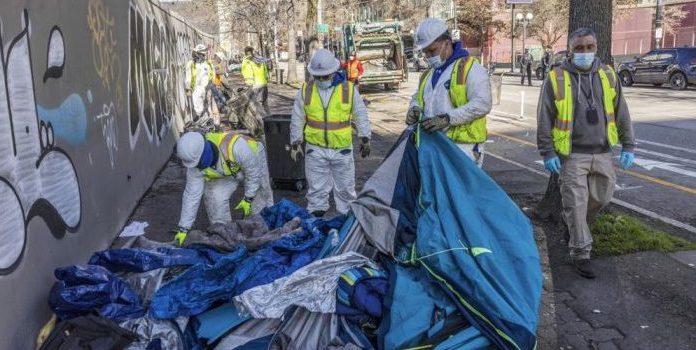() Washington state Sen. Simon Sefzik, R-Ferndale, and state Rep. Sharon Shewmake, D-Bellingham, can’t agree on what it means to be tough on crime.
The two are candidates for the state’s 42nd district Senate seat, which Sefzik now holds. Shewmake represents the district, in position 2, in the state House.
The candidates sparred over the definition in a pair of dueling editorials in the Cascadia Daily News.
At issue is whether being tough on crime means only passing stricter laws, increasing law enforcement and levying lengthy prison sentences, or whether attacking crime could also include providing treatment for drug offenders and economic opportunity for everyone.
In an Oct. 26 op-ed, Sefzik stated that Shewmake holds the “radical opinion” that possession of hard drugs should not be treated as a felony and that his opponent is “so anti-police that not only has she voted for some of the most restrictive anti-police laws in the country (HB1310 and HB1054), she returned a campaign check from the Washington State Troopers PAC in 2020.”
Sefzik maintains that cities where Democrats hold power are significantly less safe than those led by Republicans. He cited a 12.3% increase in violent crime in Washington state in 2021, including murder, rape, aggravated assault and robbery, as well as a 26.5% increase in hate crimes. “We were No. 1 in the nation for catalytic converter thefts,” he added.
“When you drive around Bellingham, do you think our crime problem has gotten better or worse?” Sefzik asked.
Shewmake responded in a Nov. 2 op-ed, accusing her opponent of pushing for a return to the War on Drugs.
“My opponent is narrowly focused on policing and incarceration,” she wrote. “These are important tools, but they are not the only tools. Public safety includes stronger gun-safety laws, access to behavioral health services, a well-functioning justice system that is swift, fair and certain, and an economy that works for everyone.”
Shewmake also asserted her pro-police sentiments and track record, which she said includes voting for “penalties for catalytic converter theft and resale” as well as “common-sense gun regulations” and lower taxes for working people.
When it comes to crime policy, Sefzik said, “We can’t ignore the evidence in front of us.” He was referring to “letting people overdose in the streets” of Bellingham as evidence of a failed Democratic strategy for fighting crime.
Shewmake, too, cited evidence which she sees as the result of an ineffective Republican strategy.
“The war on drugs cost our nation over a trillion dollars with little to show for it,” she wrote. “We criminalized addiction, a treatable brain disease, which filled our prisons with drug users and fueled a violent drug trade in our communities. When nonviolent drug users left prison, they had a felony on their record, which meant they struggled to get a job, an apartment or even visit their kids at school. We’ve tried Sefzik’s strategy; it didn’t work.”
The last day for voters of Washington’s 42nd Legislative District to weigh into this debate by casting ballots is Nov. 8.
The crime, drug abuse and homelessness in the Evergreen state also may be helping fuel outider GOP candidate Tiffany Smiley’s surge in polls against incumbent Sen. Patty Murray in the U.S. Senate.
According to some reliable nonpartisan polls, the two are neck-and-neck entering into Tuesday’s voting.

